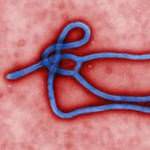Mutating
0 CommentsMultiple mutations are complicating the diagnosis and treatment of the disease. Genetic sequencing the virus from 78 patients, consisting of 99 samples, since the inception of the outbreak leads to the discovery that the virus is mutating during the course of the “Zaire” strain outbreak. Researchers are gathering data to build a history of the particular strain, the disease possibly using bats as hosts since 2004. Gire:
We’ve uncovered more than 300 genetic clues about what sets this outbreak apart from previous outbreaks. Although we don’t know whether these differences are related to the severity of the current outbreak, by sharing these data with the research community, we hope to speed up our understanding of this epidemic and support global efforts to contain it.

